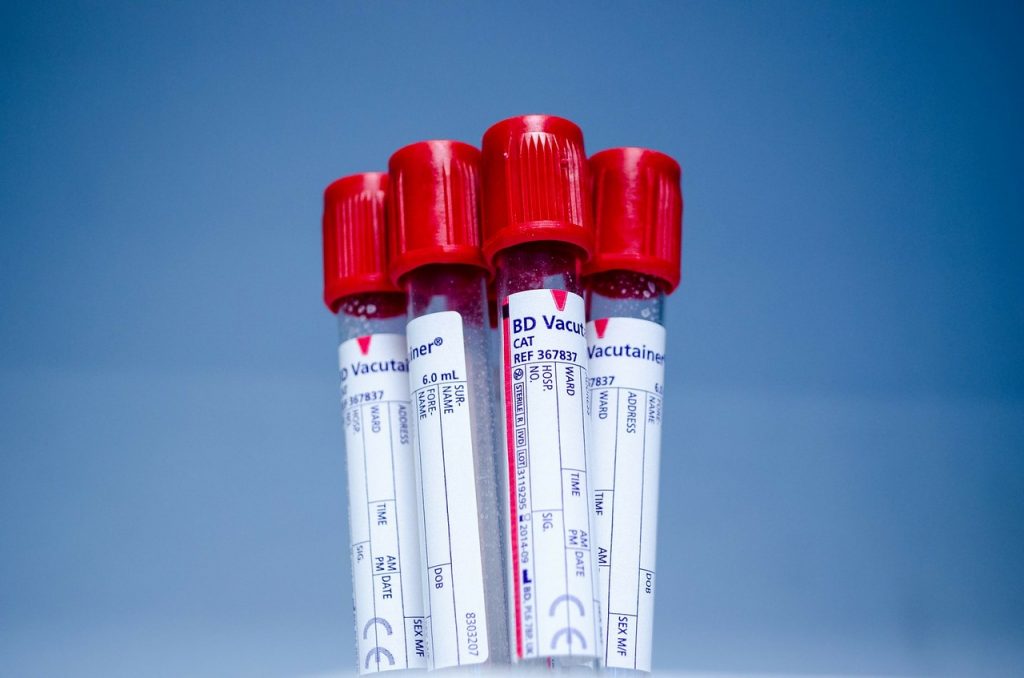Which STDs can be checked with a blood test?
Testing for STDs and STIs with a blood test is quick and simple. While a needle isn’t everyone’s first choice, many blood tests are now performed by simply pricking the end of the finger and collecting a small drop of blood. But which STIs can be tested for by blood, and how does it work? Here, we summarise the testing methods for various STIs.
HIV
The human immunodeficiency virus (HIV), which stays in the body for life once contracted, is best detected by blood. Testing methods differ depending on how much time has passed since an incident of concern and may include looking for the p24 antigen – the first marker of the presence of an HIV infection – and/or antibodies – the proteins made by the immune system in response to a virus.
Often, a confirmatory test is performed before deeming an individual to be HIV-positive.
There are several different blood tests which can detect the presence of HIV in the body:
HIV DUO Test
Combining testing for HIV 1 and 2 antibodies and the p24 antigen, this test is referred to as the ‘DUO’. This is the test recommended by the UK’s current HIV testing guidelines, accurate at 28 days after potential exposure. In comparison to the 4th generation HIV test, a 5th generation test will specify whether it is the HIV 1 antibodies, HIV 2 antibodies or the p24 antigen that has triggered a reactive result.
RNA PCR Test
This is the earliest possible test available to detect an HIV infection. The PCR testing method can detect HIV 1 in the body at ten days post-exposure. This means that anyone who is worried about HIV can get tested ten days after an incident of concern. It is recommended that this test is followed up with a DUO test at 28 days.
Instant HIV Test
Similar to the DUO test, the HIV Instant test can detect HIV 1, 2 and the p24 antigen. This test can be performed 26 days after any incident of concern. Rather than sending the blood sample to a laboratory for analysis, this test is run on the spot with results in less than 20 minutes while you wait at your appointment.

Hepatitis A, B and C
Hepatitis is a viral infection affecting the liver. There are many types of Hepatitis, all of which can be tested for with a sample of blood. While some blood tests detect antibodies, other tests look for the virus itself. There are also blood tests available that can determine whether a person is immune to Hepatitis following a vaccine or a past infection.
Herpes
The Herpes Simplex Virus (HSV) is an infection which causes sores in the genital area or around the mouth. There are two types: HSV-1 and HSV-2. It is estimated that up to 70% of the world’s population under 50 years of age are infected with HSV-1. However, many people do not know that they have the virus as it often presents no symptoms.
Whilst a swab of the infected area can be taken if the patient is showing symptoms, a blood test is used to detect the HSV antibodies when there are no visible symptoms. Anyone testing for Herpes by blood should bear in mind that it is possible to carry the virus but never show symptoms.
Syphilis
Unlike the viruses mentioned above, Syphilis is a bacterial infection that can cause serious long-term damage to the body over time. Syphilis can be tested for by blood when no symptoms are present, or by swab, if a person has a visible sore or lesion which may potentially be caused by the early stages of Syphilis. A blood test will detect antibodies at just nine days post-exposure.
Even after a Syphilis infection has been treated, the antibodies may remain detectable for many years. This means that retesting may produce a ‘positive’ result, even when the infection is no longer present.
Blood tests with Better2Know
Please contact our sexual health advisory team for more information on any of our blood tests or to arrange an appointment. If you are worried about STIs, you may want to consider one or more of our Instant tests. We can help you to relieve any concerns you have about your sexual health today.
Sources
[1] Tests to Diagnose Genital Herpes
[2] Herpes Simplex Virus Type 1
[4] Syphilis: Information for blood donors
Categories
- Awards
- Bacterial Vaginosis
- Blood Tests
- Cervical Cancer
- Chlamydia
- Condoms
- Covid-19
- Gardnerella
- Genital Warts
- Gonorrhoea
- Health and Wellness
- Hepatitis A
- Hepatitis B
- Hepatitis C
- Herpes
- HIV
- HIV (AIDS)
- Home Testing
- HPV
- Instant Testing
- MSM
- Mycoplasma
- News
- Non-Specific Urethritis
- PAP Smear
- Pre-Pregnancy
- Sexual Health
- STD Symptoms
- STD Tests and Screens
- STI Transmission
- Stigma
- STIs
- Swab Tests
- Syphilis
- Trichomonas
- Ureaplasma
- WSW
- Zika
